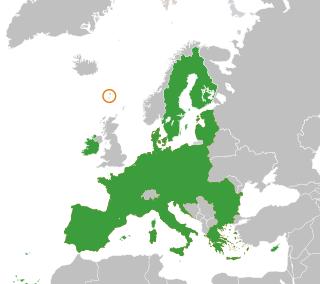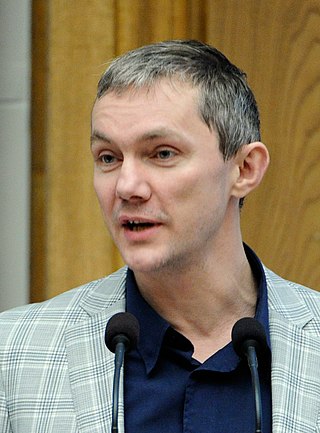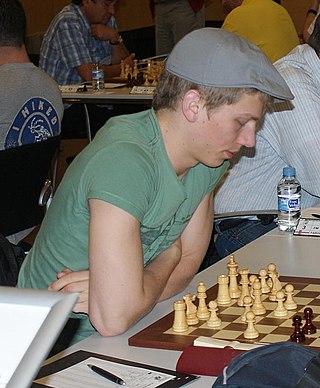
The early details of the history of the Faroe Islands are unclear. It is possible that Brendan, an Irish monk, sailed past the islands during his North Atlantic voyage in the 6th century. He saw an 'Island of Sheep' and a 'Paradise of Birds', which some say could be the Faroes with its dense bird population and sheep. This does suggest however that other sailors had got there before him, to bring the sheep. Norsemen settled the Faroe Islands in the 9th or 10th century. The islands were officially converted to Christianity around the year 1000, and became a part of the Kingdom of Norway in 1035. Norwegian rule on the islands continued until 1380, when the islands became part of the dual Denmark–Norway kingdom, under king Olaf II of Denmark.

The economy of the Faroe Islands was the 166th largest in the world in 2014, having a nominal gross domestic product (GDP) of $2.613 billion per annum. GDP increased from DKK 8 billion in 1999, to 21 billion in 2019. The vast majority of Faroese exports, around 90%, consists of fishery products.

The flag of the Faroe Islands is an offset cross, representing Christianity. It is similar in design to other Nordic flags – a tradition set by the Dannebrog of Denmark, of which the Faroe Islands are an autonomous territory.

The Inatsisartut, also known as the Parliament of Greenland in English, is the unicameral parliament of Greenland, an autonomous territory in the Danish Realm. Established in 1979, it meets in Inatsisartut, on the islet of Nuuk Center in central Nuuk.
Sjálvstýri is a liberal, autonomist political party on the Faroe Islands. It is currently led by the Mayor of Klaksvík, Jógvan Skorheim.

The Faroese People's Party – Radical Self-Government is a pro-Faroese independence conservative and conservative-liberal political party on the Faroe Islands led by Beinir Johannesen. One of the four major parties, it has had eight seats in the Løgting since the 2019 election, making it the joint-largest party, but it has neither of the Faroes' seats in the Folketing.

Lesbian, gay, bisexual, and transgender (LGBT) rights in the Faroe Islands are relatively similar to that of Denmark. The progress of LGBT rights has been slower, however. While same-sex sexual activity has been legal in the Faroe Islands since the 1930s, same-sex couples never had a right to a registered partnership. In April 2016, the Løgting passed legislation legalizing civil same-sex marriage on the Faroes, recognizing same-sex marriages established in Denmark and abroad and allowing same-sex adoption. This was ratified by the Folketing in April 2017. The law went into effect on 1 July 2017.

The Danish Realm, officially the Kingdom of Denmark, or simply Denmark, is a sovereign state and refers to the area over which the monarch of Denmark is head of state. It consists of metropolitan Denmark—the kingdom's territory in continental Europe and sometimes called "Denmark proper" —and the realm's two autonomous regions: the Faroe Islands in the North Atlantic and Greenland in North America. The relationship between the three parts of the Kingdom is also known as The unity of the Realm.

The following outline is provided as an overview of and topical guide to the Faroe Islands:

The Faroe or Faeroe Islands, or simply the Faroes, are an archipelago in the North Atlantic Ocean and an autonomous territory of the Kingdom of Denmark. The official language of the country is Faroese, which is closely related to and partially mutually intelligible with Icelandic.

The Faroe Islands, a self-governing nation within the Kingdom of Denmark, is not part of the EU, as explicitly asserted by both Rome treaties.

Høgni Reistrup is a Faroese singer, musician, writer and scientist from Tórshavn, Faroe Islands. He is the co-writer of the book Exit Føroyar ; he wrote it together with Heri á Rógvi. The books was published in 2012 and created a major debate in the Faroe Islands and in Denmark about the problems the Faroe Islands were facing with population decline in the islands, where the biggest problems seemed to be that half of the young people who moved away to study abroad never moved back again; especially the women did not move back again. After a period of six years with negative net migration in the Faroe Islands, the country saw an increase in the population in 2014 and 2015.

Sjúrður Skaale is a Faroese politician, journalist, skydiver, belly dancer, and comedian. He is a member of the Folketing for the Social Democratic Party. From 2008 to 2011 he was a member of the Løgting.
Ebba Hentze was a Faroese writer of children's books and a poet and translator.

The Faroese independence movement, or the Faroese national movement, is a political movement which seeks the establishment of the Faroe Islands as a sovereign state outside of Denmark. Reasons for independence include the linguistic and cultural divide between Denmark and the Faroe Islands as well as their lack of proximity to one another; the Faroe Islands are about 990 km (620 mi) from Danish shores.

The levels of education in the Faroe Islands are primary, secondary and higher education. Most institutions are funded by the state; there are few private schools in the country. Education is compulsory for 9 years between the ages of 7 and 16.

P/F Bakkafrost is a Faroese salmon farming company based in Glyvrar on the island of Eysturoy in the Faroe Islands. Bakkafrost is the largest fish farming company in the Faroe Islands, and is the biggest private employer in the islands. Bakkafrost is the third-largest fish farming company in the world.

Helgi Dam Ziska is a Faroese chess Grandmaster. He is the first Faroese player to qualify for the Grandmaster title. Ziska is the top ranked and the highest ever rated player from his country, and has been rated number one amongst Faroese chess players since the age of 16. He has competed at the Chess Olympiad since 2006, representing the Faroe Islands.
Energy in the Faroe Islands is produced primarily from imported fossil fuels, with further contributions from hydro and wind power. Oil products are the main energy source, mainly consumed by fishing vessels and sea transport. Electricity is produced by oil, hydropower and wind farms, mainly by SEV, which is owned by all the municipalities of the Faroe Islands. The Faroe Islands are not connected by power lines with continental Europe, and thus the archipelago cannot import or export electricity.
The COVID-19 pandemic was confirmed to have reached the Faroe Islands, an autonomous territory of Denmark, in March 2020. The confirmed infection rate was 1 case per 280 inhabitants, one of the highest rates in the world, but the archipelago also tested at a very high frequency, with the number of tests equaling c. 34 per cent of the population. As of 28 February 2022, there have been 34648 confirmed cases. Among these, 31 persons have died with COVID-19.



















